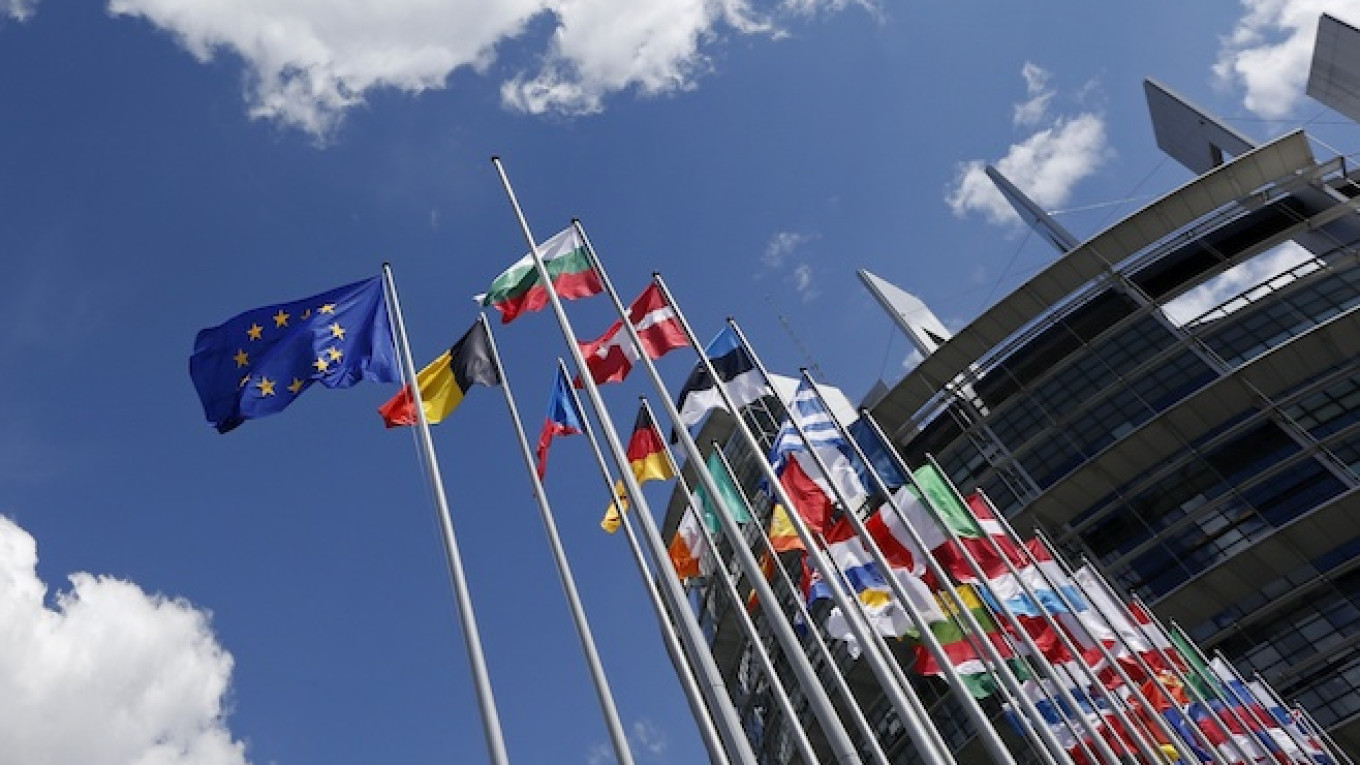European Union governments have agreed in principle to expand the list of people targeted with asset freezes and travel bans over the Ukraine crisis, diplomats have said.
The number and names of those to be added to the sanctions list will be decided at another meeting on Wednesday, an EU diplomat said after the bloc's ambassadors discussed the situation in Ukraine on Monday.
So far, the EU has imposed limited measures, targeting 61 people in Russia and Ukraine with asset freezes and travel bans, as well as two energy companies in the Ukrainian peninsula of Crimea, taken over by Moscow earlier this year.
More people, rather than companies, are expected to be added to the list later this week, the diplomat said. Another diplomat said the bulk of those added to the list would be separatists from eastern Ukraine.
EU leaders warned at a June 27 summit that the bloc could impose more sanctions on Moscow unless pro-Russian rebels wound down the crisis in the east of the country within a few days.
They demanded that Ukrainian rebels agree to ceasefire verification arrangements, return border checkpoints to Kiev authorities, free hostages and launch serious talks on implementing Ukrainian President Petro Poroshenko's peace plan.
Poroshenko decided a week ago to call off a patchy 10-day ceasefire and to resume an offensive against pro-Moscow rebels in eastern Ukraine.
The EU has hesitated about imposing hard-hitting trade sanctions against Russia because of fears among some member states about antagonizing their major energy supplier.
See also:
A Message from The Moscow Times:
Dear readers,
We are facing unprecedented challenges. Russia's Prosecutor General's Office has designated The Moscow Times as an "undesirable" organization, criminalizing our work and putting our staff at risk of prosecution. This follows our earlier unjust labeling as a "foreign agent."
These actions are direct attempts to silence independent journalism in Russia. The authorities claim our work "discredits the decisions of the Russian leadership." We see things differently: we strive to provide accurate, unbiased reporting on Russia.
We, the journalists of The Moscow Times, refuse to be silenced. But to continue our work, we need your help.
Your support, no matter how small, makes a world of difference. If you can, please support us monthly starting from just $2. It's quick to set up, and every contribution makes a significant impact.
By supporting The Moscow Times, you're defending open, independent journalism in the face of repression. Thank you for standing with us.
Remind me later.


